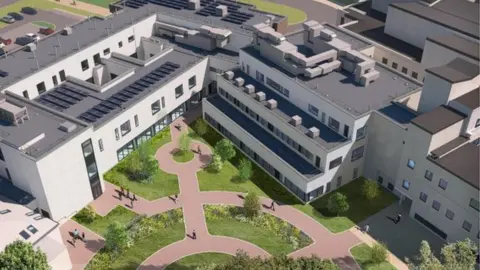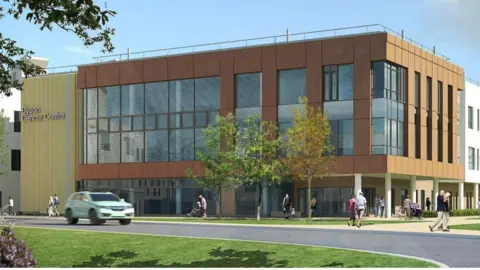Bath's Royal United Hospital unveil Dyson cancer centre plan
 BBC
BBCA planning application has been made for a £20m state-of-the-art cancer centre at the Royal United Hospital, in Bath.
Fundraising began in 2012, and Sir James Dyson donated £4m towards the Forever Friends Appeal in 2013.
Parts of the existing buildings in Zone One, at the hospital would be demolished to make way for the centre.
The application is yet to go before the planning committee at Bath and North East Somerset Council.
It is hoped that if planning consent is given early next year, the centre will open in 2022, the Local Democracy Reporting Service said.
"In the last decade we have undertaken a significant programme of redevelopment to transform our site and further improve the services we provide," a trust spokesman said.
World War Two buildings
"This includes building the Dyson Neonatal Care Unit, a new Pathology Laboratory, a new pharmacy, a spiritual care centre, a new Oral and Maxilla Facial Surgery and Orthodontic Department and most recently the RNHRD and Brownsword Therapies Centre.
"Completion of the new RNHRD and Therapies Centre means, subject to planning permission, we can demolish the old therapies centre to make way for our new Dyson Cancer Centre."
The centre would replace buildings that are no longer fit for purposes on the north of the 52-acre RUH site, at Combe Park, originally constructed during World War Two to house injured airmen.
"The poor estate currently gives patients a suboptimal experience, particularly in the chemotherapy department and the existing wide distribution of cancer services across the RUH requires patients to travel around the hospital," the planning documents say.
"The cancer centre will enable the provision of high quality services with world class cancer outcomes within a holistic, healing environment, where the patient's experience is as important as their clinical care."

